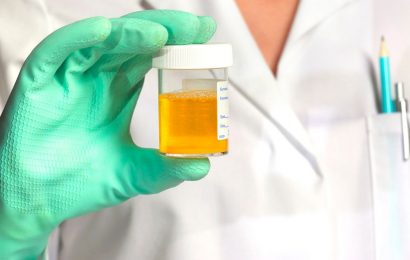Real-world assessment of the effectiveness of severe acute respiratory syndrome coronavirus 2 (SARS-CoV-2) vaccines is happening in some countries with the help of mass vaccination drives. It has been noted that the immune response to the first dose of vaccine differs in patients who have had a previous SARS-CoV-2 infection.
 Study: T-cell and antibody responses to first BNT162b2 vaccine dose in previously infected and SARS-CoV-2-naive UK health-care workers: a multicentre prospective cohort study. Image Credit: Boyloso/ Shutterstock
Study: T-cell and antibody responses to first BNT162b2 vaccine dose in previously infected and SARS-CoV-2-naive UK health-care workers: a multicentre prospective cohort study. Image Credit: Boyloso/ Shutterstock
The outcome of a study conducted in Israel indicated that the BNT162b2 (tozinameran; Pfizer–BioNTech) mRNA vaccine was 57% effective against symptomatic infection after two to three weeks of a single dose and 74% effective in reducing hospitalization due to coronavirus disease 2019 (COVID-19). To prioritize the administration of the first dose of the BNT162b2 vaccine to a large population, the UK government increased the dosing interval from three weeks to 12 weeks.
The SARS-CoV-2 Immunity and Reinfection Evaluation (SIREN) study conducted in the United Kingdom (UK) included healthcare workers in UK National Health Service (NHS) hospitals. This large, prospective cohort study inferred that the BNT162b2 vaccine was 72 % effective against symptomatic or asymptomatic infection after 21 days of a single dose in healthcare workers devoid of SARS-CoV-2 antibody, which furthers further improved to 86% after one week of the second dose. Most previous studies focused on the protection provided by antibodies but failed to characterize the immunity provided by T-cells.
The study
The Protective Immunity from T-cells to COVID-19 in Healthcare workers (PITCH) is a prospective, cohort, multi-center study enclosed within the SIREN study designed to assess the effectiveness of the BNT162b2 vaccine in healthcare workers, primarily the immunity developed after the first dose. It also compared the immune response to the BNT162b2 vaccine in healthcare workers already infected with SARS-CoV-2 with healthcare workers who were COVID-19 antibody negative. The study is reported in a paper published in the journal the Lancet Microbe.
This study included 289 healthcare workers aged 18 years or above from four different hospitals in the UK. Healthcare workers previously infected with COVID-19 were identified with the help of a positive RT-PCR test or positive anti-SARS-CoV-2 nucleocapsid antibodies. Peripheral blood mononuclear cells (PBMCs) were extracted from blood samples taken from healthcare workers before vaccination and after 28 (±7) days of single or both doses of the BNT162b2 vaccine. Extracted PBMCs were used for interferon-γ enzyme-linked immunospot assay, which enabled the detection of spike-specific T-cell responses in healthcare workers and the comparison between the SARS-CoV-2 antibody-negative individuals and the ones who were previously infected with SARS-CoV-2.
Of 289 healthcare workers, 145 previously infected and 119 SARS-CoV-2-negative subjects were given a single dose of the vaccine, and 25 SARS-CoV-2-negative healthcare workers were given both doses of the BNT162b2 vaccine between Dec 9, 2020, and Feb 9, 2021.
Also, the median time for formerly infected healthcare workers from earlier infection to vaccination was 268 days. It was observed that the spike-specific T-cell response was 5.2 times higher in formerly infected healthcare workers compared to SARS-CoV-2-negative healthcare workers after 28 days of the first dose of the BNT162b2 vaccine. Also, the T-cell responses after a single dose in formerly infected individuals were comparable with T-cell responses in SARS-CoV-2-negative healthcare workers after two doses of the vaccine. Interestingly, no relation was established between age and T-cell response.
T-cell responses and antibody responses following a single dose were compared in previously infected and infection-naive healthcare workers.”
Limitations
Since the study involved primarily female participants and no individuals older than 66 years or those with comorbidities, the observations about vaccine responses are restricted to a healthy population. Since this prospective study included a large number of participants, the complete assessment could not be performed in the entire cohort due to sampling availability, prioritization, and /or feasibility. Also, since the Delta variant was not the dominant strain at the time of the study, the effect of the BNT162b2 vaccine on the Delta variant was not evaluated. This needs to be evaluated in future studies.
Conclusion
This study reported the results from the analysis of immune responses to SARS-CoV-2 in 289 healthcare workers, including 145 formerly infected and 119 SARS-CoV-2-negative healthcare workers who were given a single dose of the Pfizer vaccine, and 25 SARS-CoV-2 negative healthcare workers who were given two doses of the vaccine. The antibody and T-cell responses in SARS-CoV-2-negative healthcare workers who received a single dose of the BNT162b2 vaccine were comparable to those who were previously infected. Future studies should focus on the impact of previous SARS-CoV-2 infection and the dosing interval of the vaccine on the duration of antibody and T-cell responses.
-
Angyal A, eta l. T-cell and antibody responses to first BNT162b2 vaccine dose in previously infected and SARS-CoV-2-naive UK healthcare workers: a multicentre prospective cohort study. The Lancet Microbe. 2021. doi: https://doi.org/10.1016/S2666-5247(21)00275-5 https://www.thelancet.com/journals/lanmic/article/PIIS2666-5247(21)00275-5/fulltext
Posted in: Medical Science News | Medical Research News | Disease/Infection News
Tags: Antibodies, Antibody, Assay, Blood, Cell, Coronavirus, Coronavirus Disease COVID-19, Enzyme, Healthcare, Immune Response, immunity, Interferon, Respiratory, SARS, SARS-CoV-2, Severe Acute Respiratory, Severe Acute Respiratory Syndrome, Syndrome, T-Cell, Vaccine

Written by
Susha Cheriyedath
Susha has a Bachelor of Science (B.Sc.) degree in Chemistry and Master of Science (M.Sc) degree in Biochemistry from the University of Calicut, India. She always had a keen interest in medical and health science. As part of her masters degree, she specialized in Biochemistry, with an emphasis on Microbiology, Physiology, Biotechnology, and Nutrition. In her spare time, she loves to cook up a storm in the kitchen with her super-messy baking experiments.
Source: Read Full Article


